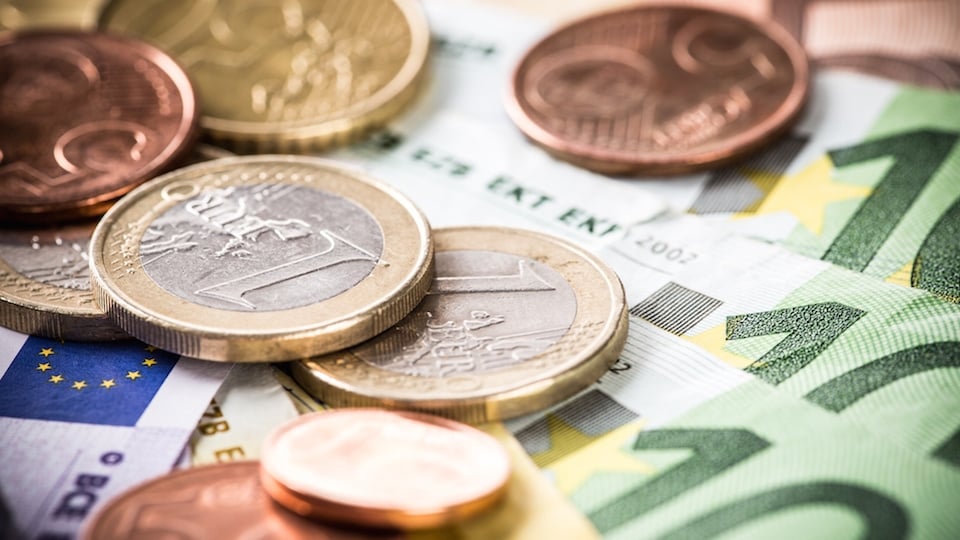NATIONAL CURRENCY & EXCHANGE RATES
France is a member of the European Union and one of 23 countries in the region that uses the euro (abbreviated €) as its national currency. One euro is divided into 100 cents and there are seven notes in circulation, available in denominations of €5, €10, €20, €50, €100, €200 (rare) and €500 (rare).
There are also eight coins in circulation in denominations of €1 and €2, then one, two, five, 10, 20 and 50 cents.
To find the current exchange rate for the euro, visit www.xe.com
USING CREDIT OR DEBIT CARDS IN PARIS
Visa and Mastercard are widely accepted throughout the city, though some merchants have a minimum purchase amount for credit card payments. American Express cards are accepted to a lesser extent, while Discover cards are usually not accepted. Call your bank ahead of your trip to let them know that you would like to use it abroad and make sure to get a breakdown of the fees they charge.
USING ATMS IN PARIS
ATMs (distributeur in French) are located all throughout Paris, and enable you to withdraw cash in euros 24 hours a day. They almost all accept Mastercard and Visa cards and give you a choice of instruction in French and English. As a general rule, it is more cost effective to use a debit card as opposed to a credit card in a foreign ATM as fees tend to be lower.
Before you go:
- Check with your bank to ensure that your card will work overseas.
- Double check that your card will not expire during your trip.
- Ask what your 24-hour withdrawal limit is. Depending on your needs, you may need to increase or decrease this limit. Some travelers prefer to have a higher limit to reduce transaction fees, while others prefer a lower limit for security purposes.
- Ask your bank what it charges for international transactions.
Bank ATMs in Paris usually do not charge usage fees and are located in popular areas of the city, as well as in and around bank locations. However, independent ATMs (e.g. Euronet) that are not affiliated with a bank will charge additional usage fees and should be avoided.
EXCHANGING MONEY AT A BANK IN PARIS
Most French banks will not exchange money to non-account holders. For those that do, they are generally open from 9am to 5pm or 6pm, from Monday to Friday or Tuesday to Sunday. Some branches will close around midday for lunch.
USING MONEY EXCHANGE BUREAUS IN PARIS
You’ll find money exchange bureaus near popular tourist areas around the city, at train stations and airports. Exchange bureaus change their rates daily based on the market, and typically offer a 5% spread between buy and sell rates for any particular currency.
In addition to this spread, most exchange bureaus also charge a commission fee based on the amount you are exchanging as well as your form of payment. Because you will generally be charged a higher commission for exchanging smaller sums, it is a good idea to avoid exchange bureaus unless you are exchanging larger amounts of money. When visiting an exchange bureau, remember to bring a form of ID with you, as this is required to complete the transaction.
To find the current exchange rate for the euro, visit www.xe.com.
CASHING TRAVELER'S CHECKS IN PARIS
While it is still possible to purchase traveler’s checks, they are no longer a convenient option as vendors rarely accept them, even if they are in euros. If you do decide to bring traveler’s checks, your best bet is to exchange them in banks or exchange offices. Keep in mind that you will likely be charged a service fee for cashing traveler's checks, and remember that you will need to bring your passport.
CLAIMING VAT REFUNDS IN PARIS
In France, the purchase price for goods includes a Value Added Tax (VAT), which ranges from 12% for everyday items, up to 33% for luxury items. However, if you are a non-EU resident you can receive a VAT refund for qualified purchases.
The first step to claiming a VAT refund in Paris is to shop at a qualifying store. Nearly all department stores in the French capital participate in the VAT refund scheme. For smaller shops and boutiques, ask the store attendant or look for a Tax-Free sticker on the door.
In order to qualify for a VAT refund, you must spend at least €175 at a qualifying store on the same day. After making your purchase, ask a store attendant for a Retail Export Form (bordereau de détaxe in French) – you will need your passport or a copy of your passport for the attendant to complete the form.
Sign up for our Vacation Perfect newsletter.
